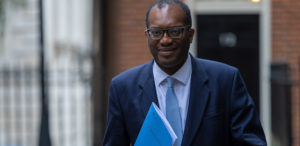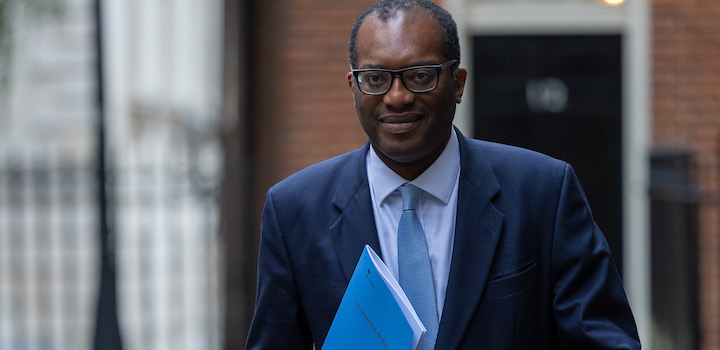 Chancellor Kwasi Kwarteng’s mini-budget, which today introduced the biggest tax cuts in 50 years, has been described by leading economists as “a huge economic experiment that carries a lot of risks”.
Chancellor Kwasi Kwarteng’s mini-budget, which today introduced the biggest tax cuts in 50 years, has been described by leading economists as “a huge economic experiment that carries a lot of risks”.
In a radical change to the government’s tax policy, Kwarteng announced the abolition of the 45% top rate of income tax, a reduction of one percentage point in the basic rate of tax (taking it to 19%), a cancellation of planned increases in corporation tax, a reversal of the recent rise in National Insurance contributions and an increase in stamp duty thresholds.
He also confirmed the energy price cap, the introduction of investment zones where businesses will receive large tax cuts and relaxed planning restrictions, cancellation of the health and social care levy (though guaranteeing that funding will be maintained) and the abolition of the cap on bankers’ bonuses.
“The plan seems to be to borrow large sums at increasingly expensive rates, put government debt on an unsustainable rising path, and hope that we get better growth,” said Paul Johnson, director of the Institute for Fiscal Studies.
“This marks such a dramatic change in the direction of economic policy-making that some of the longer-serving cabinet ministers might be worried about getting whiplash.”
But Kwarteng was unapologetic about the government’s change of direction. A “new approach for a new era” was required that is focused on growth, he stressed in his speech.
“For too long in this country, we have indulged in a fight over redistribution,” the chancellor said. “Now we need to focus on growth, not just how we tax and spend. We won’t apologise for managing the economy in a way that increases prosperity and living standards.”
It seems almost inconceivable that plans made last year, when inflation was expected to peak around 3%, will not need topping up, unless the government is willing to allow a (further) deterioration in the range and quality of public services.
Room151’s Monthly Online Treasury Briefing
September 30 2022
Online
Public sector delegates – register here
Impact of inflation
Johnson highlighted the lack of any details on the impact of inflation on public spending where local government, in particular, has been voicing concerns.
“It seems almost inconceivable that plans made last year, when inflation was expected to peak around 3%, will not need topping up at some point, unless the government is willing to allow a (further) deterioration in the range and quality of public services. Presumably, this government would borrow for that also,” Johnson said.
The Local Government Association (LGA) also raised concerns about the lack of a response on inflation. It pointed out that “massive increases” in costs due to soaring inflation and rises in the National Living Wage were forcing councils to cut services to meet their legal duty to balance the books.
“Government will need to step in to ensure councils have the funding to meet these ongoing pressures, in order to protect the services that will be vital to achieve its ambitions to produce a more balanced economy,” said James Jamieson, LGA chairman.
We will have to wait until the autumn budget to see how the government will tackle the crisis in public services. But we are now in uncharted waters. The government has made a radical bet that will not be forgotten easily if it doesn’t pay off.
Crisis in public services
CIPFA’s chief economist Jeffrey Matsu suggested it was unclear how the announcements would impact public services, which he said were already suffering from severe backlogs and staffing shortages.
“We will have to wait until the autumn budget to see how the government will tackle the crisis in our public services. But what is clear is we are now in uncharted waters. The government has made a radical bet that will not be forgotten easily if it doesn’t pay off.”
Matsu described the Growth Plan as an “extraordinary and massive intervention” that represented a “huge gamble”. He said the chancellor was taking an “unprecedented risk” by assuming that tax cuts will lead to growth.
“It is being taken without the safety net of robust forecasts of potential impacts and will initially see the Treasury lose billions in tax take, making public spending increasingly reliant on borrowing. This comes at a time when central government have been critical of local authorities doing the same.”
However, the government subsequently confirmed that the Office for Budget Responsibility will publish a full financial forecast before the end of the calendar year.
—————
FREE weekly newsletters
Subscribe to Room151 Newsletters
Room151 LinkedIn Community
Join here
Monthly Online Treasury Briefing
Sign up here with a .gov.uk email address
Room151 Webinars
Visit the Room151 channel














